If you are experiencing an engine noise coming through your stereo, it can be unclear why this is happening. So, how do you get rid of the engine noise coming through the speakers? We have researched to help answer this question for you in this article.
If you are getting an engine noise coming through your speaker, it is typically due to the ground location. A simple fix is to change the ground location and see if the noise stops. Changing the ground location should solve the issue. However, if it doesn't, your next best option is to install an inline noise suppressor. Lastly, you can try adding a capacitor to your connection to allow frequencies to pass through.
Installing an aftermarket stereo is an exciting upgrade to your ride. However, like other aftermarket parts, there can be some hang-ups along the way. This article will discuss how to solve the engine noise coming through the radio and troubleshoot it, so read on!
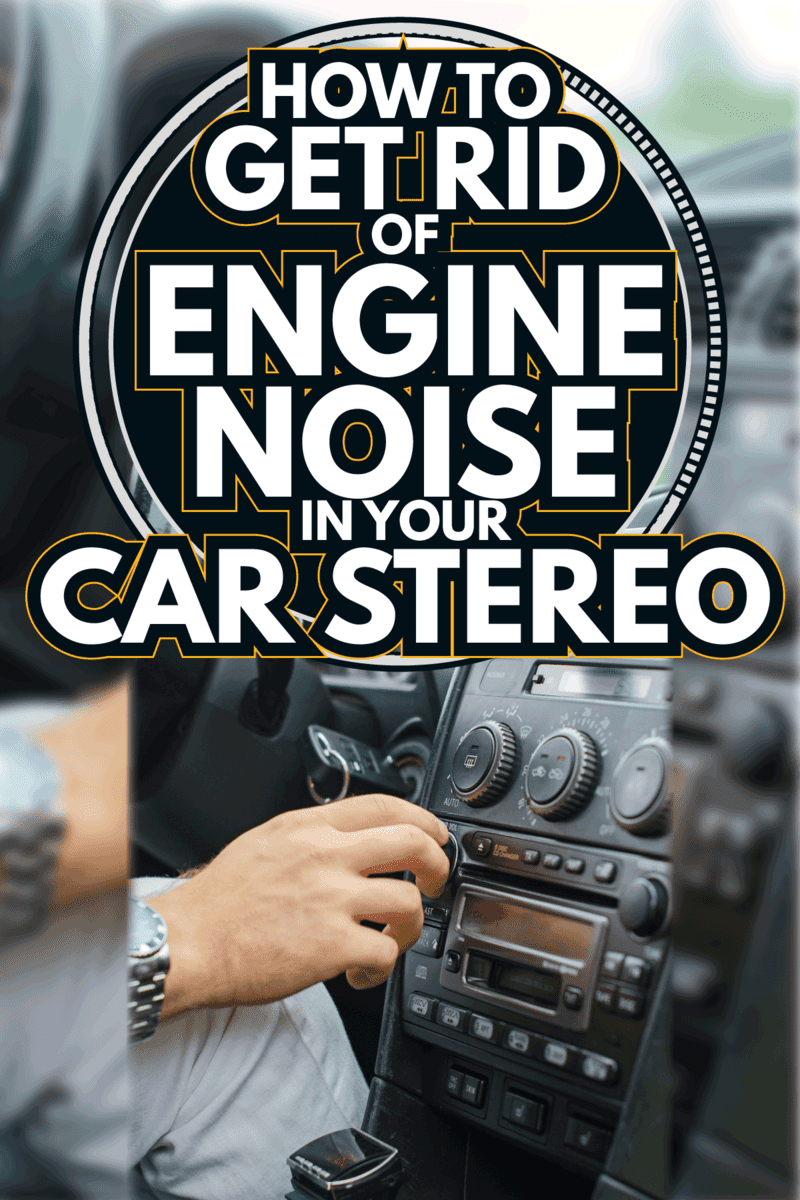
How To Get Rid Of Engine Noise In Your Car Stereo Systems
Listening to an aftermarket stereo that you just installed can be pretty exciting. The amplified sound can make your favorite song that much better. However, it can all be ruined if the engine's sound is coming through the stereo itself. So how do you get rid of that annoying noise? Let's take a look at your options.
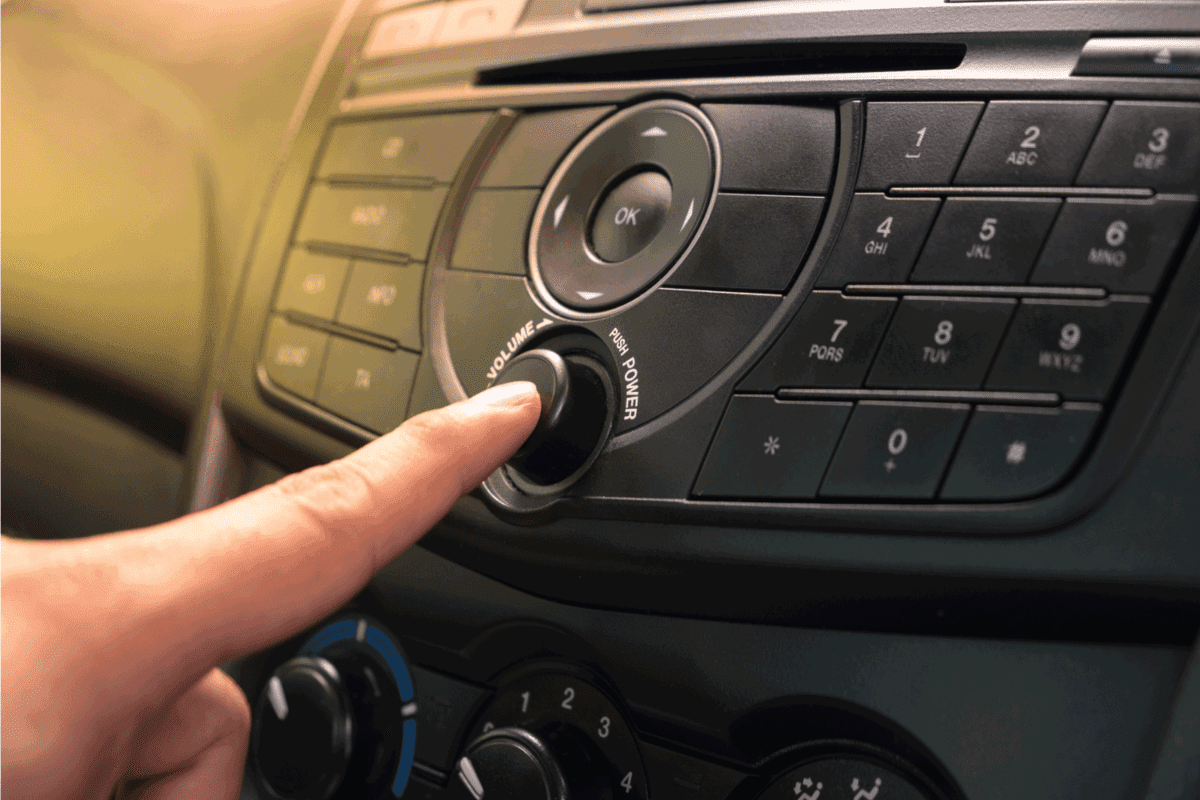
Change the Ground Location
If you want to hear the music from your car stereo without any noise, make sure that the ground location is correct. If not, changing the ground location should solve the engine noise problem. You can use an amp probe or a multimeter like the one below to check if the grounding is working correctly. It's necessary for every system and installation will surely improve with it.
Click here to see the AstroAI multimeter at Amazon.
Install an Inline Noise Suppressor
If this doesn't work, then you should consider installing an inline noise suppressor. You install these suppressors inline before you add an aftermarket radio or amplifier. While they will not stop the noise 100%, it will reduce the noise by a significant amount. If the alternator is the culprit, then the suppressor should help solve this issue.
Since these devices use a capacitor to stop the noises, if your vehicle is newer, you could have issues with compatibility due to the capacitor being too small. But if this is an older vehicle, then these noise suppressors will work great.
Install a Capacitor
The other option you have is to install a capacitor right at the battery. If you do this, make sure that it's a good size and has the correct polarity (it needs to be negative) for it to work correctly.
There are several kits you can use, but make sure it's an adjustable one. Also, make sure to take a look at the kit before buying it because there could be items in the kit besides what you need for this fix.
Kits will have capacitors to stop the noise. Once installed, if you still get engine noise, then I would try to use another capacitor. Some are not adjustable, so it may be challenging to get the right size you need.
The great thing about this fix is that it adds no resistance and won't reduce the voltage going to your battery.
Capacitors come in different sizes, so make sure the capacitor has enough power to stop the noise from coming through. These are not for every car, so make sure they fit before installing them on your car.
Now that you've fixed your car stereo system, let's talk about some other things that can cause engine noise to come through the radio.
Why Does my Car Stereo have Engine Noise?
Your vehicle's electrical system connects to your car stereo and emits a noise that travels through the speakers. Typically, the noise is loudest when you first start up your vehicle and will go away as the engine runs.
This happens because all of the power in your vehicle connects to the main wiring harness located under the hood. However, the electrical wires are routed throughout your vehicle so that they can reach all of the different accessories.
The noise, then, comes from these power sources being close enough to interfere with your speakers. In addition, installing an aftermarket stereo will cause additional noise since it takes power from a different source than what was originally in the vehicle.
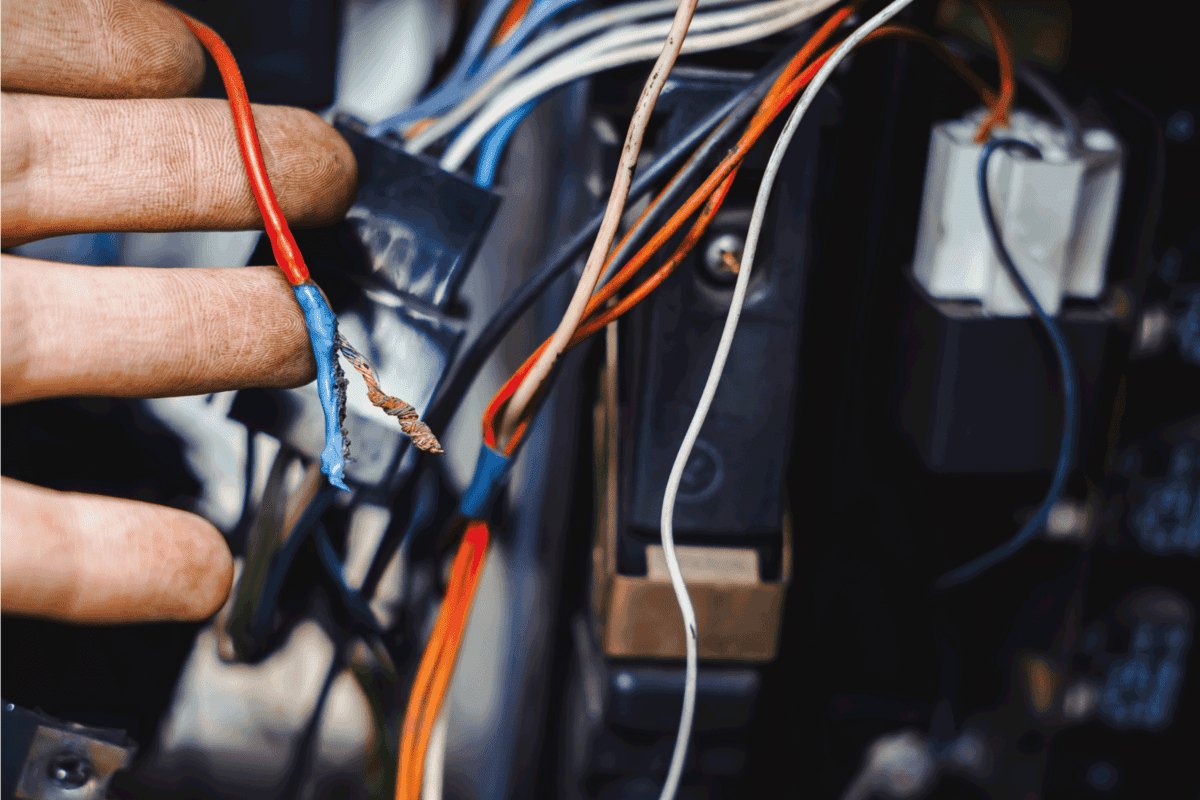
Another reason why you hear engine noise through your stereo is because of the alternator. When the alternator is charging, it emits a high pitch noise that can be heard through your speakers. This noise typically will get louder when you have low battery power and go away as the lights come on.
Another reason for this could be an electrical grounding issue. If your vehicle's grounding system had incorrect installation to begin with, then this is usually the cause.
This can happen when you install aftermarket stereos and some wire connections aren't made correctly. If you don't fix these wiring issues, then your ground loop noise will never go away.
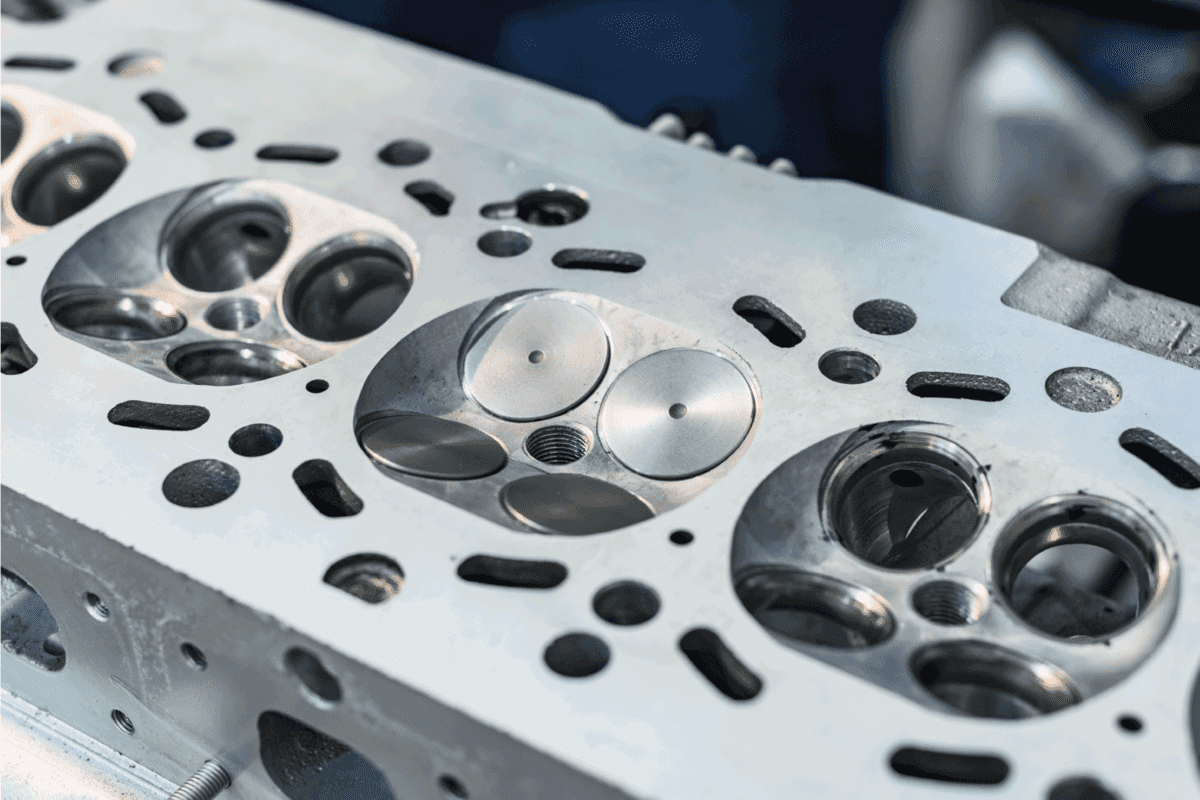
Why is my Engine Loud when I Accelerate?
There are several possible reasons as to why your engine is loud when you are accelerating. Some can be an easy and inexpensive fix. Others can be costly and even be detrimental to the engine itself. Let's take a look at some of the most common reasons:
Engine Knocking Noise
Engine overheating, over-advanced ignition timing, higher than expected fuel octane levels in your gasoline, and much more can cause engine knocking sounds. When it comes to knocking noises under your hood, you will want to do everything possible to fix the problem because they can quickly damage your engine.
So if you have a knocking sound, the first thing you need to do is check your oil. If it's low, then you should add some more. Next, make sure that you are running the proper octane rating of gasoline for your vehicle (low octane rating = more knocking).
It may also be a good idea to change your spark plugs if they are old and worn out.
Valve Train Problems
Another common cause of knocking can be valve train problems such as worn-out camshaft lobes and lifters, warped or bent pushrods, and partly clogged oil ways that prevent the proper flow of oil to all engine components.
You should also make sure that your intake manifold gasket is not leaking and causing vacuum leaks.
Faulty Belt Tensioner
A noisy belt tensioner can also be the cause of this type of noise. If it is not tightened down, your belts and pulleys will make a terrible sound when you accelerate.
You should also check and tighten all other bolts that hold on parts such as the alternator because if they become loose, they will often make a clicking sound because the power steering pump will be turning on and off.
Transmission Problems
If your transmission is a few years old, it may be on its way out. For example, when you accelerate, a loud whining sound could mean that it's not engaging the gears correctly and needs to be rebuilt or replaced.
This also applies to transfer cases as well. In both of these cases, it will most likely mean that the components are not appropriately lubricated.
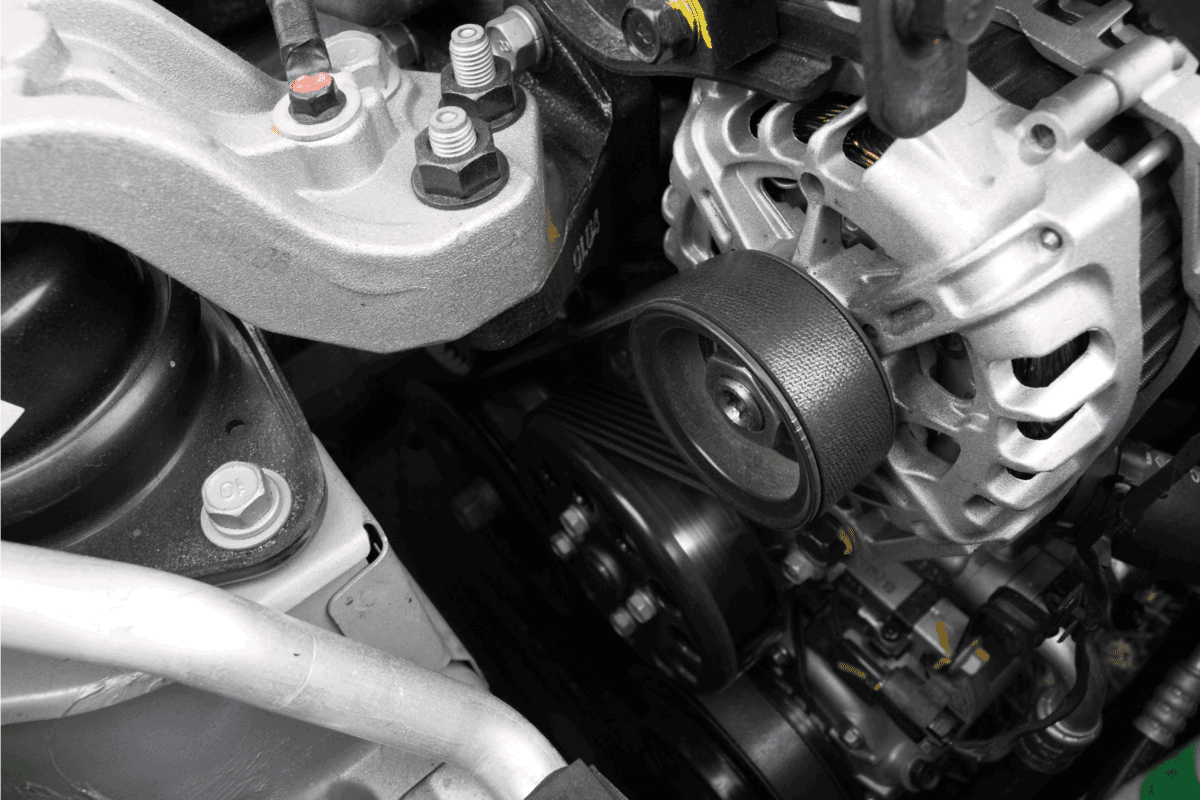
Can a Bad Alternator Cause a Whining Noise?
Yes, a bad alternator can cause a whining noise. This is because the belt that drives the alternator is very sensitive to wear, and if you don't change it at scheduled times, it can quickly break down and start making noises because of the oil deterioration. Another reason why a belt may be worn is because of dirty oil or old age. If you don't replace it, the belt will become dry and worn.
How Can I Make my Whining Alternator Quieter?
To fix a loud alternator that is whining, you need to replace the belt with a new one. You may also want to check and change your drive belts as well.
Some people have tried using a special belt lubricant, but this doesn't always work. Another option is to see if the serpentine belt needs replacing. This can commonly help quiet the alternator. Lastly, tighten any bolts and see if the bearing in the alternator needs to be replaced!
How Do I Stop my Car Speakers from Buzzing?
Buzzing, popping, or many different factors can cause crackling noises. Some of the most common reasons are electrical problems, loose bolts in-car speakers, and corroded wire terminals that are not making contact with each other correctly or are badly corroded. In addition, power quality issues cause you to lose your sound while driving.
If you want to stop your car speakers from buzzing, you need to clean the terminals and make sure they contact each other. It would help to inspect all connectors and wiring in-between for any loose bolts or corroded wire terminals. If it has too much corrosion, then you will need to use a specific wiring terminal cleaner.
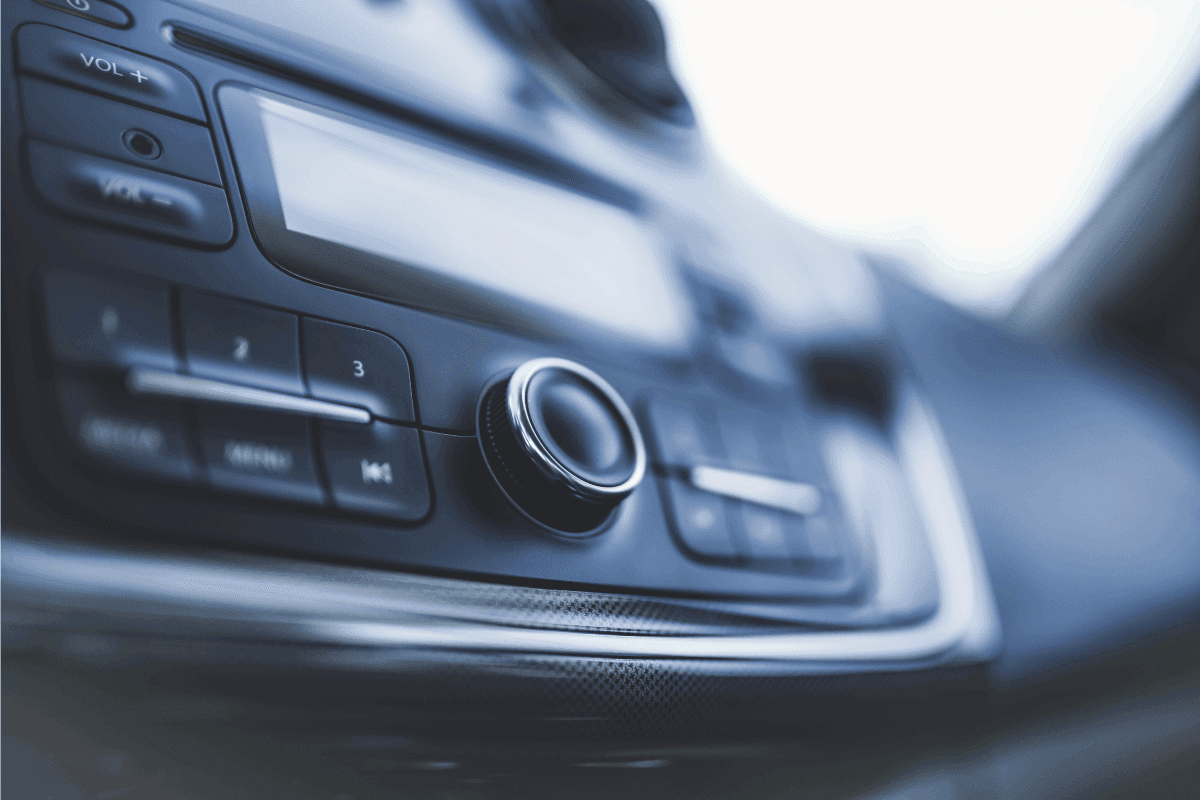
Final Thoughts
Overall, if you have engine noises coming through your radio, your best bet is to change your ground location. Changing the ground location is the easiest and least expensive option to troubleshoot first. If you try the following two options and still have the issue, take it to a professional specializing in car stereos!
If you like this article, then you should also check out:
My Car Won't Start But The Radio And Lights Work [8 Things To Check]

